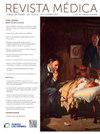从学术诚信的角度制定关于在医学教育和健康科学中使用人工智能的声明
IF 0.4
Q4 MEDICINE, GENERAL & INTERNAL
引用次数: 0
摘要
引言 人工智能(AI)通过 ChatGPT 等工具正在改变高等教育,越来越多的学生和教师将人工智能融入日常实践。本文讨论了高等教育中人工智能与学术诚信之间的关系,并介绍了制定适应人工智能使用的学术诚信声明的过程。方法:结果结果表明,声明有效地融入了学术工作,促进了透明度和诚信度。讨论和结论讨论强调了不同学术水平采用声明的差异性,表明需要一种更加个性化的方法。总之,应强调宣言在促进道德实践和应对技术与教育交叉领域未来挑战方面的作用。本文章由计算机程序翻译,如有差异,请以英文原文为准。
Desarrollo de una declaración de uso de inteligencia artificial con una perspectiva de integridad académica en educacióN MéDica y Ciencias De la Salud
Introduction
Artificial intelligence (AI), through tools like ChatGPT, is transforming higher education with more and more students and teachers incorporating AI into daily practice. Along these lines, new challenges emerge in the educational field, where the need for a balance between efficiency and originality, and a deep analysis with a focus on academic integrity is required.
Aims
This article discusses the relationship between AI and academic integrity in higher education and describes the process of developing an academic integrity statement adapted to the use of AI. Methodology: Using a methodology that includes analysis of relevant AI tools and expert evaluations, a framework for the ethical and responsible adoption of AI is proposed.
Results
The results show an effective integration of the statement in academic works, promoting transparency and honesty.
Discussion and Conclusions
The discussion highlights the variability in adoption of the statement across academic levels, suggesting the need for a more personalized approach. In conclusion, the role of the declaration in promoting ethical practices and preparing for future challenges at the intersection of technology and education should be emphasized.
求助全文
通过发布文献求助,成功后即可免费获取论文全文。
去求助
来源期刊

Revista Medica Clinica Las Condes
MEDICINE, GENERAL & INTERNAL-
CiteScore
0.80
自引率
0.00%
发文量
65
审稿时长
81 days
 求助内容:
求助内容: 应助结果提醒方式:
应助结果提醒方式:


